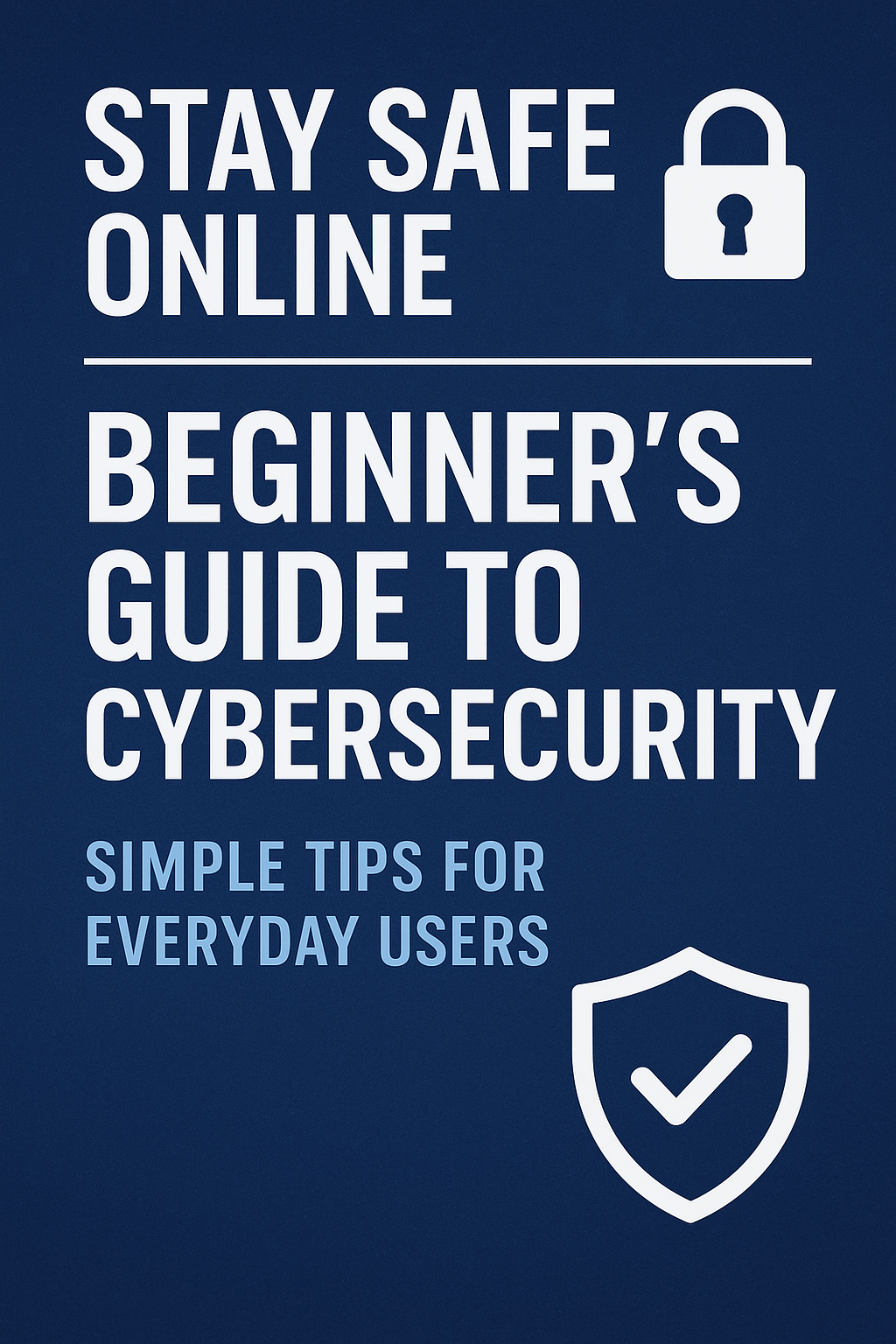Introduction
The internet has become an inseparable part of our daily lives. From shopping, banking, and working, to studying and entertainment—almost everything we do is connected to the online world. But with this convenience comes risk. Cybercriminals are constantly looking for opportunities to steal personal information, hack accounts, or even scam unsuspecting users.
If you are new to online safety, this guide will walk you through the essential practices you need to stay secure. These beginner-friendly tips will help you build a strong foundation in cybersecurity.
Why Is Online Security Important?
Even a small mistake online can lead to serious consequences.
- Identity Theft: Hackers can steal your name, email, phone number, or even government IDs.
- Financial Loss: A compromised bank account or credit card can drain your money.
- Privacy Breach: Private photos, chats, and documents can be leaked.
The good news is—you can protect yourself with some basic knowledge and safe practices.
8 Essential Online Security Tips for Beginners
1. Use Strong, Unique Passwords
Your password is the first line of defense.
- Use a mix of uppercase, lowercase, numbers, and symbols.
- Avoid predictable passwords like
123456or birthdays. - Never reuse the same password across multiple accounts.
A strong password example: Tr!ckY2025@Safe
2. Use a Password Manager
Remembering dozens of complex passwords is nearly impossible. A password manager can store and generate strong passwords for you. Popular options include LastPass, 1Password, and Bitwarden.
3. Enable Two-Factor Authentication (2FA)
Even if your password is stolen, 2FA adds another layer of protection.
- You’ll need to confirm your login with a code sent to your phone or an authenticator app like Google Authenticator or Authy.
- Always enable 2FA for email, banking, and social media accounts.
4. Secure Your Wi-Fi Connection
- Avoid using public Wi-Fi without protection—hackers often target open networks.
- If you must use public Wi-Fi, connect through a VPN (Virtual Private Network).
- At home, set a strong Wi-Fi password and update it regularly.
5. Keep Your Software Updated
Outdated apps or operating systems often contain security vulnerabilities. Hackers exploit these weaknesses.
- Turn on automatic updates for Windows, macOS, Android, or iOS.
- Regularly update browsers like Chrome, Firefox, or Edge.
6. Beware of Phishing Scams
Phishing is one of the most common cyberattacks.
- Be cautious of emails or messages asking for login details, even if they look official.
- Check the sender’s email address carefully.
- Never click suspicious links.
Tip: If in doubt, go directly to the official website instead of clicking email links.
7. Use Antivirus and Firewall Protection
- Install reputable antivirus software such as Norton, Kaspersky, or Bitdefender.
- Enable your system’s built-in firewall for extra defense.
- Run regular scans to detect threats early.
8. Backup Your Data
Even with the best precautions, accidents happen.
- Use cloud storage services like Google Drive or Dropbox.
- Keep a physical backup on an external hard drive.
- Automate your backup schedule.
Extra Tips for Everyday Online Safety
- Log out from shared computers.
- Avoid oversharing personal details on social media.
- Use encrypted messaging apps like Signal or WhatsApp.
- Be cautious with free software downloads.
Online security may sound complicated, but following a few simple rules can make a big difference. Strong passwords, two-factor authentication, regular updates, and awareness about scams can protect you from most threats.
Think of cybersecurity as a digital hygiene practice—just like brushing your teeth daily, you need to stay consistent with safe online habits.
Stay alert, stay safe, and enjoy the digital world with confidence.
